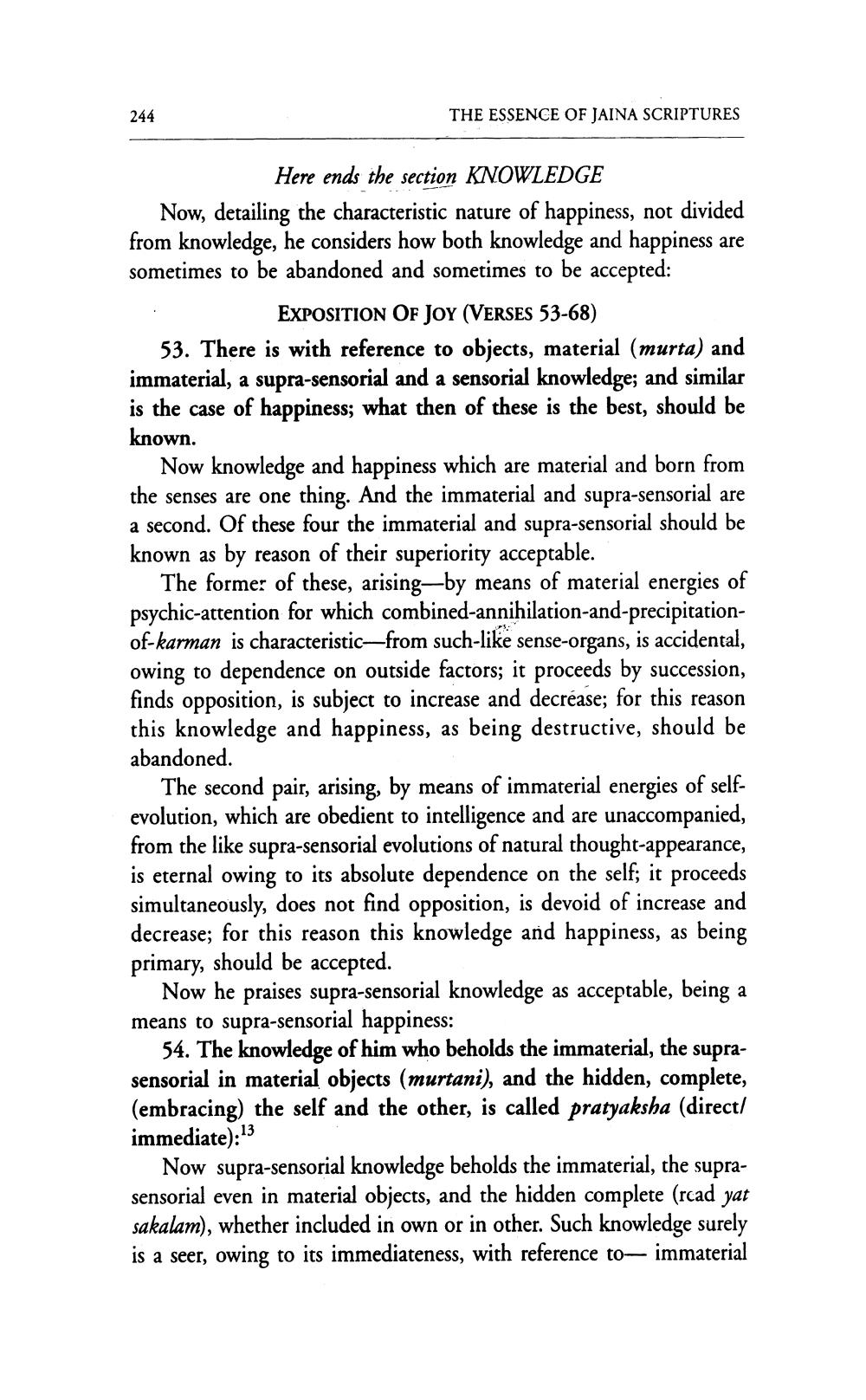________________
244
THE ESSENCE OF JAINA SCRIPTURES
Here ends the section KNOWLEDGE Now, detailing the characteristic nature of happiness, not divided from knowledge, he considers how both knowledge and happiness are sometimes to be abandoned and sometimes to be accepted:
EXPOSITION OF JOY (VERSES 53-68) 53. There is with reference to objects, material (murta) and immaterial, a supra-sensorial and a sensorial knowledge; and similar is the case of happiness; what then of these is the best, should be known.
Now knowledge and happiness which are material and born from the senses are one thing. And the immaterial and supra-sensorial are a second. Of these four the immaterial and supra-sensorial should be known as by reason of their superiority acceptable.
The former of these, arising—by means of material energies of psychic-attention for which combined-annihilation-and-precipitationof-karman is characteristic—from such-like sense-organs, is accidental, owing to dependence on outside factors; it proceeds by succession, finds opposition, is subject to increase and decrease; for this reason this knowledge and happiness, as being destructive, should be abandoned.
The second pair, arising, by means of immaterial energies of selfevolution, which are obedient to intelligence and are unaccompanied, from the like supra-sensorial evolutions of natural thought-appearance, is eternal owing to its absolute dependence on the self; it proceeds simultaneously, does not find opposition, is devoid of increase and decrease; for this reason this knowledge and happiness, as being primary, should be accepted.
Now he praises supra-sensorial knowledge as acceptable, being a means to supra-sensorial happiness:
54. The knowledge of him who beholds the immaterial, the suprasensorial in material objects (murtani), and the hidden, complete, (embracing) the self and the other, is called pratyaksha (direct/ immediate):13 .
Now supra-sensorial knowledge beholds the immaterial, the suprasensorial even in material objects, and the hidden complete (rcad yat sakalam), whether included in own or in other. Such knowledge surely is a seer, owing to its immediateness, with reference to— immaterial




